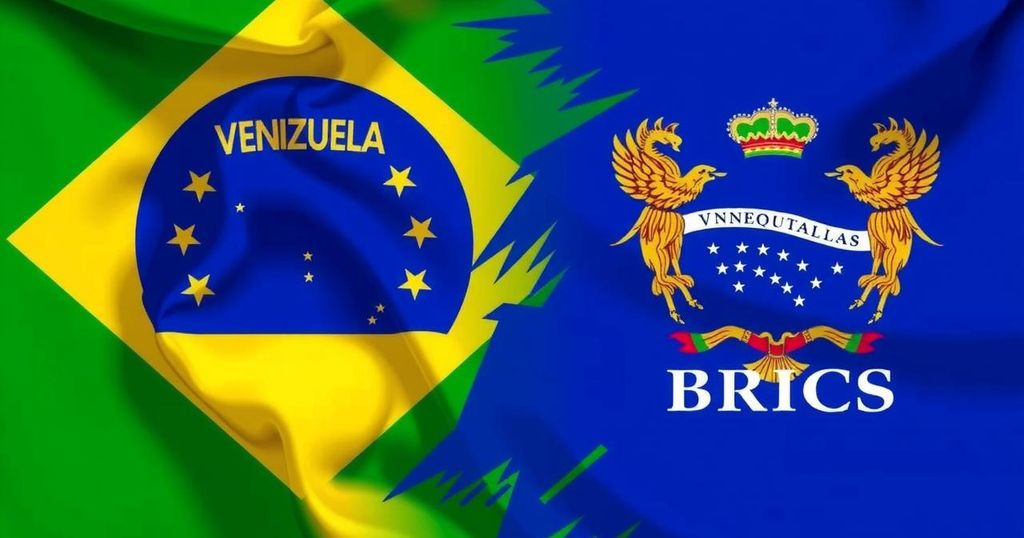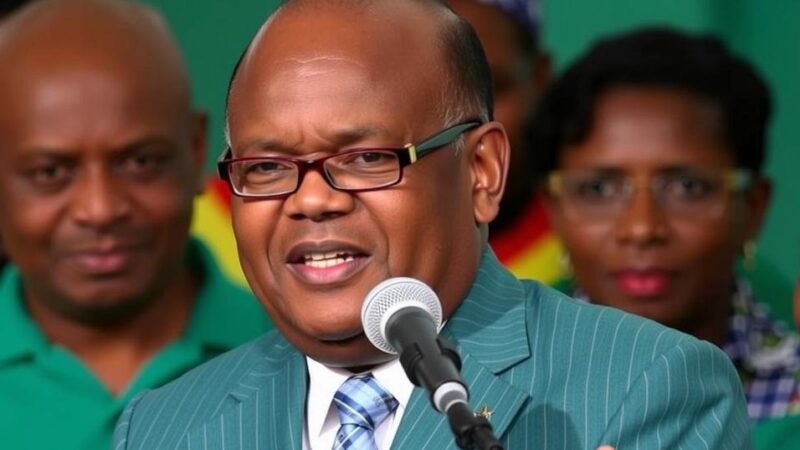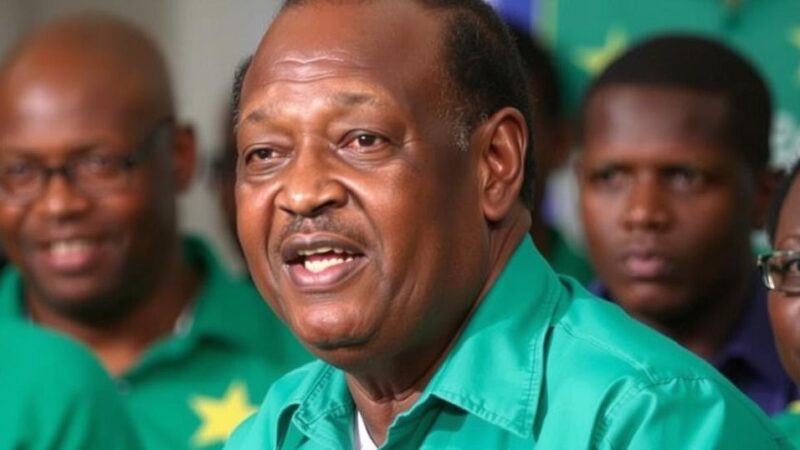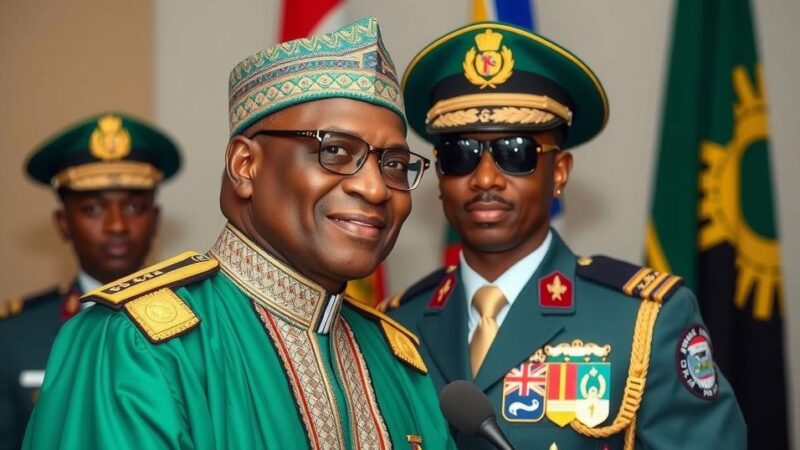On October 24, 2023, Venezuela criticized Brazil’s decision to veto its BRICS membership application, calling it a “hostile” act that perpetuates sanctions against the nation. The Venezuelan Foreign Ministry expressed discontent, linking Brazil’s policies to those of former President Bolsonaro. Brazil’s Foreign Minister confirmed that BRICS leaders reached consensus on expansion criteria, but tensions over Venezuela’s recognition by Brazil and Russia remain significant. Maduro’s attempt to join BRICS represents ongoing political struggles in Venezuela.
On Thursday, October 24, 2023, the Venezuelan government expressed its condemnation of Brazil’s veto concerning its bid to join BRICS (the group of emerging economies including Brazil, Russia, India, China, and South Africa). In an official statement issued by the Venezuelan Foreign Ministry, the decision was deemed a “hostile” act that contributes to a broader “criminal policy of sanctions” against Venezuela. This statement followed the conclusion of the BRICS summit, which took place in Kazan, Russia, from October 22 to 24. The Venezuelan Foreign Ministry articulated discontent over Brazil’s stance, stating that the representation at Itamaraty, led by diplomat Eduardo Paes Saboia, upheld a similar obstruction to Venezuela’s participation as imposed previously by former President Jair Bolsonaro. The ministry’s note emphasized that such measures reinforce a culture of “hatred, exclusion, and intolerance” directed towards Venezuelans over the past decade. A pointed declaration within the statement expressed, “The Venezuelan people feel indignation and shame at this inexplicable and immoral aggression by Itamaraty, maintaining the worst of Jair Bolsonaro’s policies against the Bolivarian Revolution founded by Commander Hugo Chávez.” Additionally, the Venezuelan government extended gratitude to Russian President Vladimir Putin for his invitation to the summit, reiterating that “no maneuver or trick will stop the course of history.” President Nicolás Maduro officially submitted his application to join BRICS in May 2024. Diplomatic insiders indicated that Brazil had resisted Venezuela’s inclusion during prior negotiations. Ultimately, at the summit’s conclusion, 13 nations were invited to join BRICS as “partner states,” with Venezuela conspicuously left out. The newly invited nations included Turkey, Indonesia, Algeria, Belarus, Cuba, Bolivia, Malaysia, Uzbekistan, Kazakhstan, Thailand, Vietnam, Nigeria, and Uganda. During the summit, Brazil’s Foreign Minister Mauro Vieira confirmed that BRICS leaders had achieved consensus on the principles and criteria guiding the group’s future expansion. He emphasized that agreement had been reached regarding the criteria that will govern this enlargement. Vladimir Putin highlighted the discord between Brazil and Russia regarding Venezuela’s BRICS membership. He mentioned that Russia recognizes Nicolás Maduro’s legitimacy following the country’s presidential elections, a point he discussed with President Lula in a phone conversation. According to Putin, membership in the group necessitates the consent of all current members. Brazil’s veto stems from its refusal to acknowledge the election results in Venezuela. In the July 28 election, the National Electoral Council announced Nicolás Maduro’s victory. Nevertheless, opposition factions dispute these results, asserting that they secured over 80% of the electoral minutes, which they believe ensures victory for former Plataforma Unitaria candidate Edmundo González Urrutia. However, these factions have not submitted any evidence of their claims to the Venezuelan courts. In recent months, President Lula has publicly commented on the elections in Venezuela, noting the lack of credible information presented by both the government and the opposition, urging the CNE to publish the results, and even suggesting the possibility of new elections.
The BRICS group, comprising Brazil, Russia, India, China, and South Africa, has been a platform for emerging economies to collaborate on economic and political issues. Venezuela’s application to join this bloc comes amidst ongoing political and economic turmoil in the country, marked by sanctions and criticism concerning its electoral processes. Historically, Venezuela’s relationship with Brazil has been complex and often contentious, particularly under previous administrations that were less accommodating to Maduro’s government. The rift highlighted by Brazil’s veto underscores the broader geopolitical divides in Latin America, especially regarding recognition and legitimacy of governmental authority in Venezuela.
In summary, Venezuela’s critique of Brazil’s veto over its BRICS membership reflects deeper political tensions and ongoing sanctions against the country. The Venezuelan government perceives Brazil’s decision as a continuation of a hostile policy originated during Bolsonaro’s presidency, perpetuating feelings of indignation within the Venezuelan populace. As the BRICS bloc expands, the principles guiding this expansion are crucial, and the disagreement between Brazil and Russia may signify larger regional dynamics at play, particularly in relation to recognition of governance in Venezuela.
Original Source: www.brasildefato.com.br







